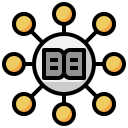Anecdotes: How Cross-Disciplinary Threads Change Real Lives
While researching city parks, a student followed links from biodiversity to heat islands to reflective materials. That trail shaped a capstone proposal: shade trees, permeable pavements, and public art that doubles as cooling infrastructure. Their university pilot won enthusiastic community backing.
Anecdotes: How Cross-Disciplinary Threads Change Real Lives
Tired of chaotic triage conversations, a nurse explored fairness concepts via digital encyclopedia entries on game theory and mechanism design. The reading inspired a transparent prioritization checklist, later adopted informally by colleagues. Patient satisfaction rose, and debates grew calmer and clearer.
Anecdotes: How Cross-Disciplinary Threads Change Real Lives
A percussionist linking polyrhythms to neural entrainment redesigned practice sessions around attention cycles and spaced repetition. Performance anxiety eased, technique improved, and students reported faster progress. What surprising field informed your work? Share your story so others can learn from it.



